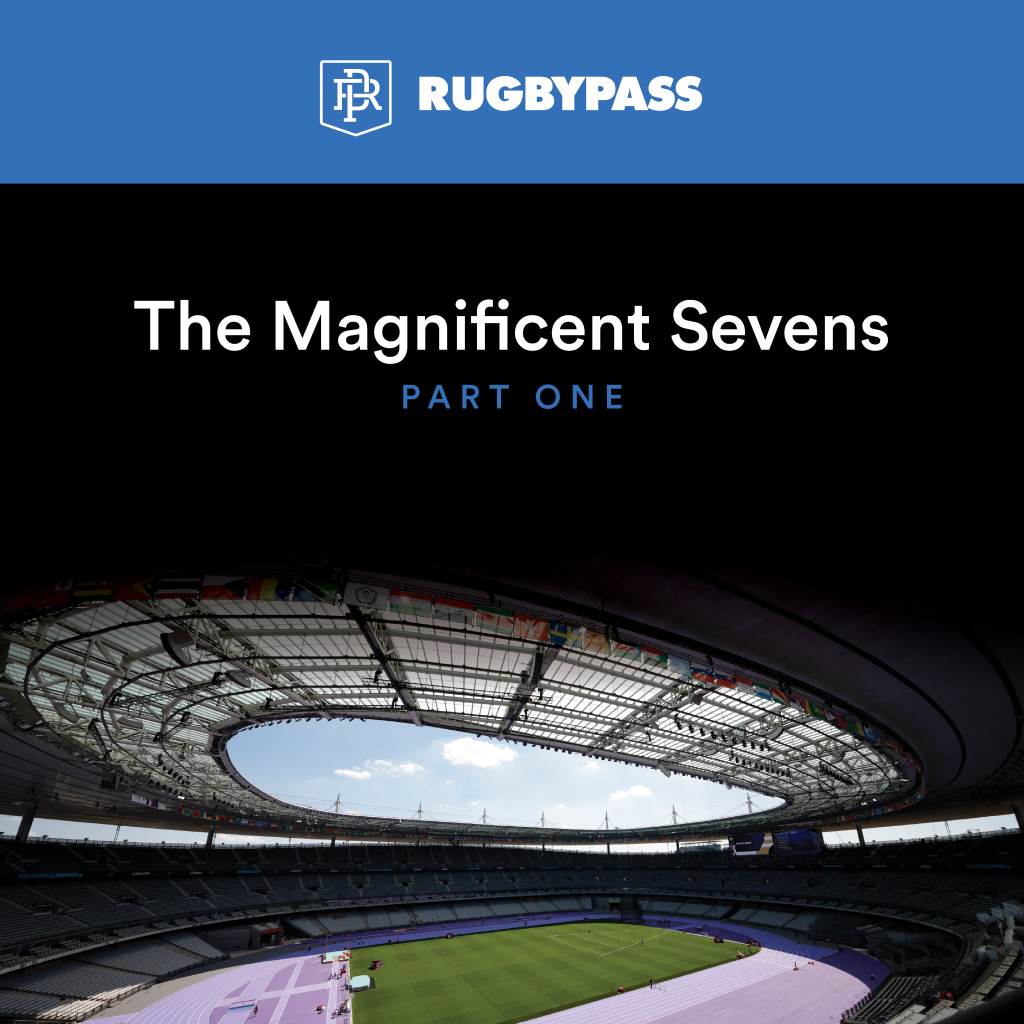
The Paris 2024 Summer Olympics will soon be here and while the official date for the opening ceremony is July 26, rugby fans will be getting early access, as the men’s rugby sevens event will start two days before things officially kick off.
However, the women’s events stay a little truer to tradition because they will run from July 28 to July 30, in what’s sure to be a scintillating competition between the 12 competing nations.
Moreover, there’s a lot of belief out there that this year’s Olympics will really give the profile of the men’s and women’s sevens a big boost - all as the best of the best fight for the medals on the world’s biggest stage.
With this in mind - and in the first part of our series of Summer Olympics 2024 rugby sevens features - and to get some more insights into what this summer really means for the game, we spoke with a number of former and current international sevens stars from the women’s game.
Jodie Ounsley
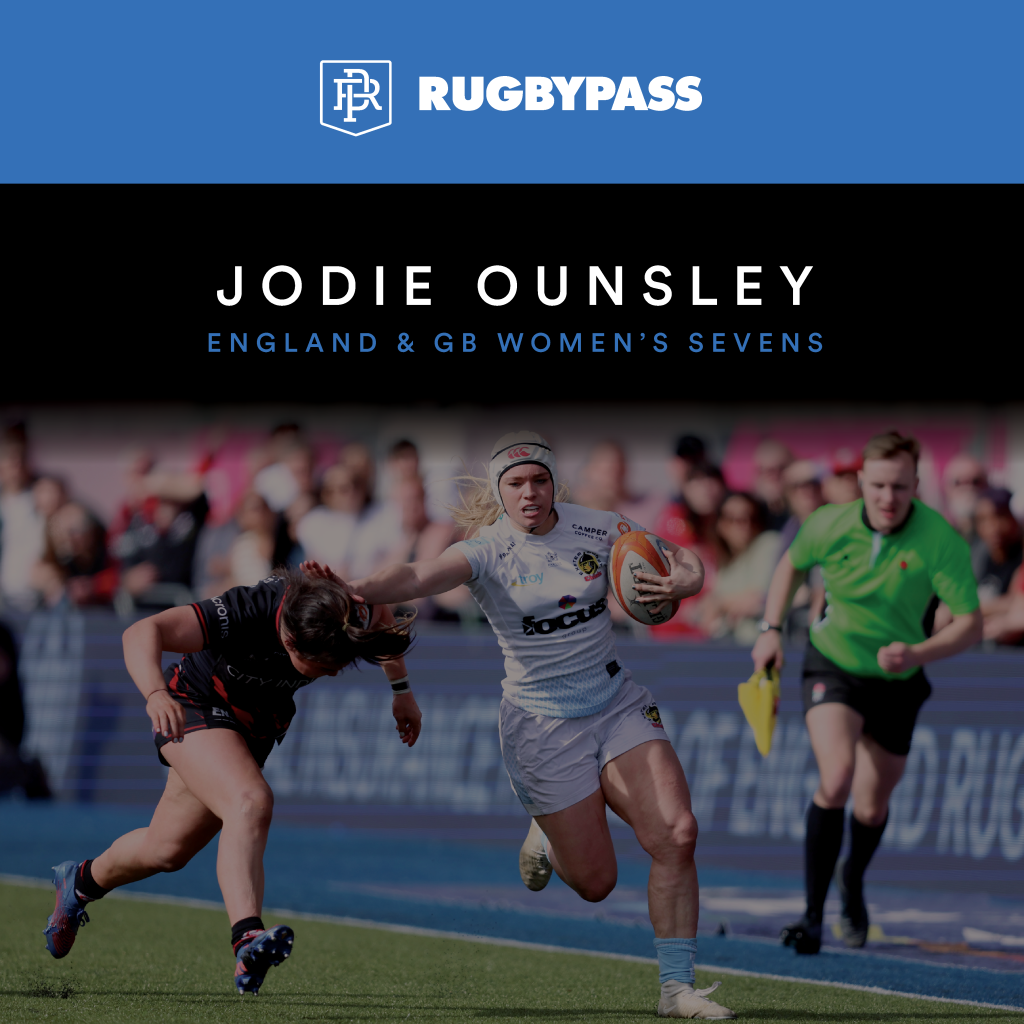
First up is former England and GB Women’s Sevens wing Jodie Ounsley, to get her views on the women’s game and what the 2024 Olympics could do for the sport:
RP: In your view, how do you think this year’s Olympics will impact on the popularity of the women’s sevens?
JO: “It can’t be anything but positive! I mean if we look back to Rio 2016, we had some huge excitement around the game, but then due to Covid and how things were with lockdowns in Tokyo in 2021, it was of course more subdued. But now with the events being in France, I’d like to think we’ll get way more interest in the women’s and the men’s events.
“Mainly this is because it’ll almost be like a ‘home’ Olympics for lots of the competing European nations, especially those with similar time zones and climates. This, and the fact there aren’t the same Covid restrictions as before, has already helped create more of a buzz around it all - especially with the women’s game.”
RP: How else might the event capture the interest of Olympic audiences?
JO: “Ultimately, fans love games with small margins and it’ll only take just one amazing moment to get the fans’ attention. Also with sevens you don’t need to have a massive rugby knowledge to get involved with it or simply watch it. It’s fast, exciting and it’s easy to be engaged by it.”
RP: Do you think after the Olympics we may see more women going into sevens?
JO: “Hopefully, especially as now it’s less separated between the XVs and the sevens, there’s more crossover so it’ll be easier for them to make the switch. I also think if we see some amazing talent on display it’ll turn a few heads. Megan Jones and Ellie Kildunne for instance are two big GB stars that have come across [to Olympics Sevens] and they’ll definitely draw more attention to the game and get people interested.”
“Sevens is a different ball game when it comes to fitness.”
RP: What was it like for you playing for the England and GB Women’s Sevens sides?
JO: “It was a whirlwind for me because I was only 18 and it came out of the blue, but I loved it. However, you do have to work hard and I did have a lot to learn at the same time, but I couldn’t have asked for a more supportive and welcoming environment.
“Something that I really liked about it all - which is still true to this day - is that it’s very joined up and cohesive with the men’s game - and that helps a lot. You eat and train in the same places, use the same facilities, travel together, and you feel more like one team. This was probably my favourite part of the sevens world and I’d like to think it’s a similar experience outside of Team GB.”
RP: Do you think such a setup would make sevens a more appealing option for young girls?
JO: “Absolutely. People probably don’t see this side of it as well, but there’s such a good feeling in the camps and that level of support translated at amateur and grassroots levels would definitely help more people get involved, not just sevens, but in rugby in general.”
RP: How did playing sevens at such a high level affect you as a player?
JO: “It can benefit you in so many ways. I started in XVs, went to sevens and then back to XVs and my skillset improved massively. Whether it was reading the game, finding more space and just being smarter in how I played. So 100% it can be a fantastic learning curve, but in fairness it is a whole different level when it’s the Olympics - you really have to step it up.”
RP: What areas did you specifically need to step it up to play at this level?
JO: “When people think about rugby, they tend to automatically think about XVs, but sevens is a different ball game when it comes to fitness. It can be so hard, but at an elite level - like the Olympics - you’ve got to be fast, fit, be able to tackle but keep all of this up.
“One little mistake as well and someone is in, so you can’t let your guard down, even if you’ve just done a sprint up the other end of the pitch, you’ve got to keep going and going. So much can happen in just 30 seconds as well, so you need to manage that intensity and pressure.”
RP: How do you go about doing that?
JO: “There’s a big focus on speed training, but I really like that side of things [laughs]. But going back to the ‘pressure’ aspects here, in XVs there are more people to bail you out, but in sevens it’s mainly you in one area, so you can’t hide.
“But - particularly on the women’s side - I’ve found that with the sevens setup you do get opportunities to voice your concerns about this pressure and then this creates a positive environment where we [as teammates] can guide each other and support one another.”
“The Olympics is just the start in my opinion.”
RP: Looking away from the Olympics, what else has changed to boost the popularity of the women’s game’s in recent years?
JO: “The women’s XVs world has completely blown up in the last couple of years. I mean just look at the recent Women’s Six Nations getting record numbers, there’s a big increase in people watching and getting behind the women’s game and this has led to more positive awareness.
“It’s also meant that people are seeing the game for what it is; then you get more sponsors, more opportunities and it grows. My hope is this domino effect continues and we get more women coming from XVs to the sevens and bringing that fanbase with them.”
RP: Finally, what else do you think could be done to grow the game after the Olympics?
JO: “The Olympics is just the start in my opinion. Like I say, more exposure will really help, especially in countries where they don’t have as much funding or as big an infrastructure for women’s sevens. More broadcasting would be great too and getting just a few more games on TV will simply get the game in front of more people. I also think that more pathways for young girls would help a great deal too.”
Katy Daley-McLean MBE
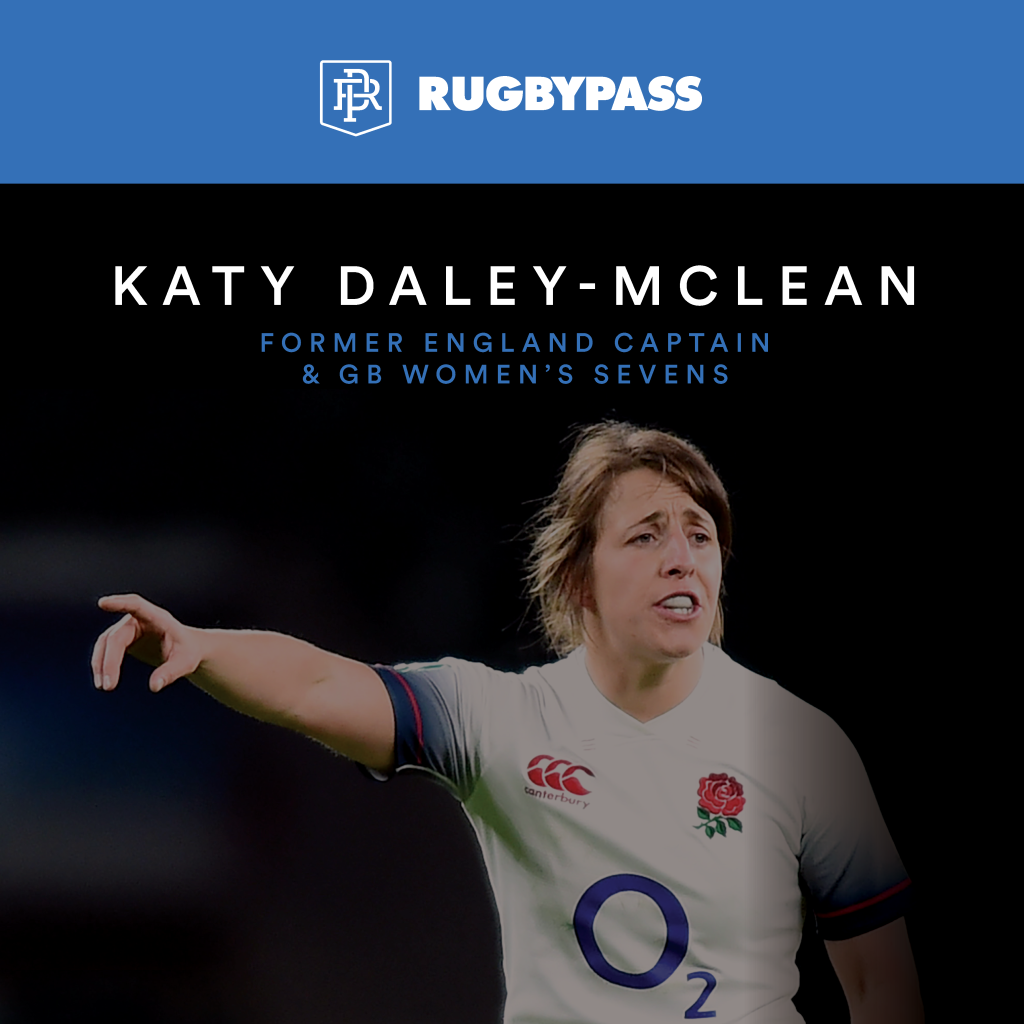
Next up, we got the views of a true rugby great in both the 15s and the sevens. None other than former Women’s GB fly-half, and of course captain of the famous 2014 Women’s Rugby World Cup-winning England side, Katy Daley-McLean MBE.
RP: What are your thoughts on how this Olympics could grow the popularity of the sevens, particularly the women’s game?
KDM: “For me, growing up ‘rugby’ was just the XVs, but then when we had the sevens at Rio in 2016, that changed the view of the sport and it was a real landmark moment for the game. It really helped drive interest in the sevens, particularly for the women’s game and has led to it being more accessible and relevant for a lot of people.”
“The Olympics also essentially makes the sevens like another, bigger version of the sport where you get this wealth of talent - and it’s fair to say that’s been great for rugby union in general. I remember my dad being a bit [waves hand dismissively] about the sevens, but then when it’s at the Olympics he’s like ‘oh, well now I’m going to watch it!’.”
RP: Can you expand on what you mean by ‘accessible’?
KDM: “So, as a game, sevens is also a nicer and simpler version of the sport, and even if you don’t know anything about rugby, you essentially get all the best bits. I’ve no doubt sevens can lead more people into the sport and with the exposure you get from the Olympics, it’ll definitely drive more interest.
“We have to move with the times as well; younger people enjoy the exciting, fast-paced nature of the sevens. So they [younger generations] may see this game at the Olympics and think ‘I want to get down to my local rugby club’. That said, in the UK we are lacking in local sevens opportunities, so there’s something that needs to be improved - especially if we’re talking about accessibility.”
“The standard and professionalism that’s on show across women’s sevens and the XVs is many levels above where it was...”
RP: How else has the women’s sevens changed since Rio 2016?
KDM: “The biggest change in my opinion has been with the physical nature of the game, alongside the fact the skill level of the girls now is significantly higher.
“Pre-Rio you had quick girls, who weren’t necessarily ballers, and those whose strength was just skill or power; whereas now if you watch the quality of many sevens sides, everybody can do everything.
“The standard and professionalism that’s on show across women’s sevens and the XVs is many levels above where it was, and not just in bigger nations like you’d expect, such as Australia, but in ones like Ireland.”
RP: If the 2024 Olympics is a success, will we see more XVs players coming over for future events?
KDM: “It’ll be fascinating to see whatever happens. I mean we’ve [GB] got Ellie Kildunne coming across to be an Olympian - and you can understand it, as that’s such an enticing carrot to have in front of you, even if it is every four years.
“At the moment, and with the greatest respect, sevens in the women’s game is only really being used for the development of players to then go to the XVs. I think if the calendars align then you might just get more players coming across to sevens- and you know, win an Olympic medal by coming out of the XVs for a year [laughs] - why would you turn that down? The difficulty will be the schedule and whether it’s really possible to do both.
“Antoine [Dupont] has drawn a lot of attention in the men’s for this; he’s come back over and is doing a really good job.”
“Whether you’re a young girl or an older lady, you’ll find a place in a rugby club."
RP: What was it like for you moving between XVs and sevens?
KDM: “I was really fortunate that I was able to go full time in 2014 and then have the chance to move and travel around the world, it was amazing. I think the big difference for me was the big increase in training for the sevens; [laughs] I was held together with tape by the end.
“Your capability as an athlete really has to come to the forefront, as well as your mental game. For example, you can be playing multiple games in a weekend and if you make one error early on in one match, you need to reset for the next one - and that’ll only be in a matter of hours. So being able to digest that and go again is really important. But in the XVs, you know, you make a mistake, you can have a week to reflect on it and change your game, or talk through it and learn from it.
“Despite this, what I will say is that when you’re touring with the sevens, you’re in a close group, you bond easier and you make friendships much easier. It’s a real benefit and a perk and that really helps your game.”
RP: Do you think we might see more sevens events and competitions starting up, especially with that four year wait for the Olympics?
KDM: “It depends on how they want to position the sevens to the fans. At the moment you get that real festival feel with SVNS, but for me, the more competitions and coverage they can get, the more it’ll get people playing and enjoying the game of rugby.
“I think if they do this and then shine a light on the amount of training and effort needed to play sevens, it’ll help give players the credit they deserve. So I really do hope the Olympics kicks this on.”
RP: What advice would you give to young girls wanting to get involved in rugby?
KDM: “It might sound a bit obvious, but it’s to get out there and give it a go. I also don’t think there’s any other sport around that gives youngsters such diversity in terms of the versions of the game that are available. This is one thing that the game has really got right and whether you’re a young girl or an older lady, you’ll find a place in a rugby club.”
Rachael Burford
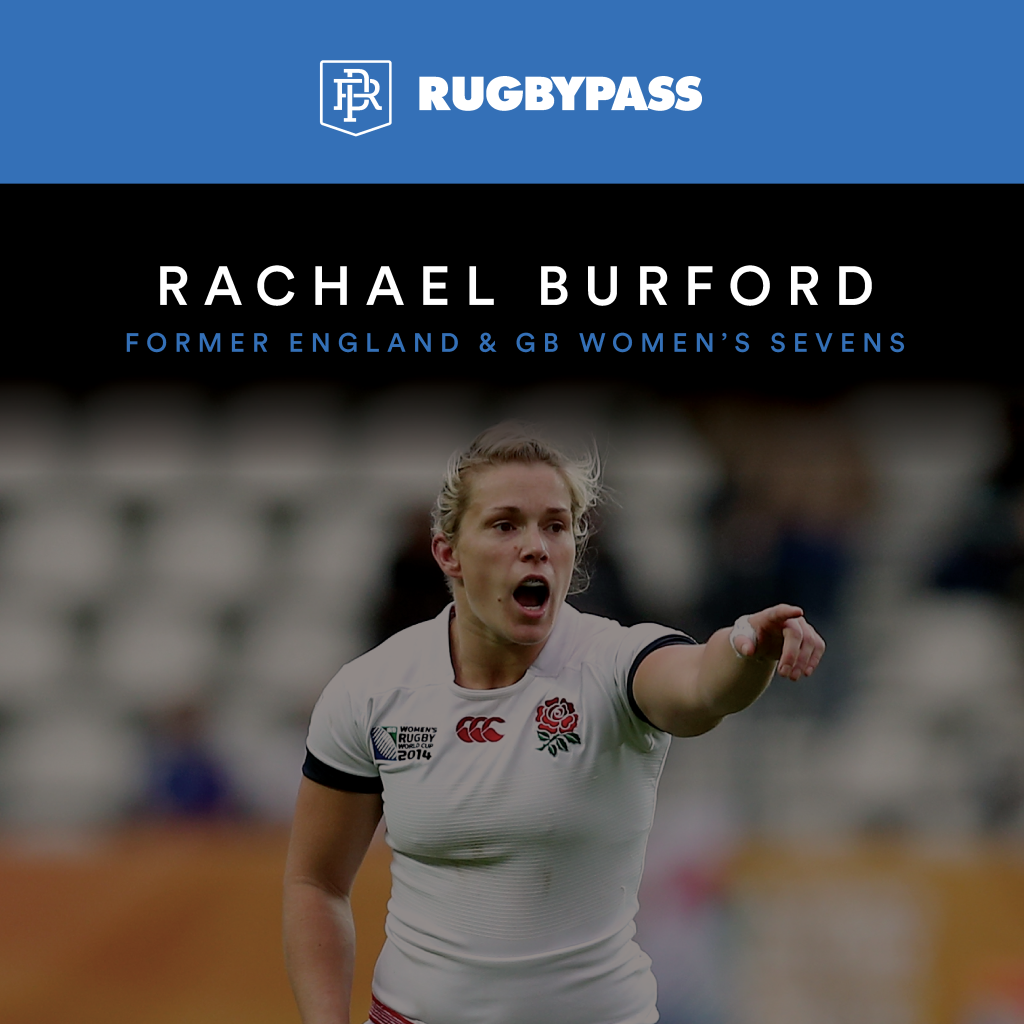
We also spoke with another former England star and GB Women’s Sevens player, Rachael Burford, to get her views on the game and the 2024 Olympics.
RP: What do you think the 2024 Olympics Sevens has the potential to do for the game?
RB: “To me, the sevens itself has the potential to unlock new markets, grow significantly and bring new audiences to the game - and the beauty of the Olympics is that we have global fans following their country rather than the sport itself, meaning we’ll naturally get more eyes on sevens and rugby itself.
“Then, the hope is they’ll get invested in the game and look to explore this interest more in other avenues around sevens. I’d like to think that six days of constant rugby on TV that’s easily viewed is sure to make a big difference.
“If I think back, I remember so many stories of people referring to an Olympian they saw when they were young as someone who got them into a particular sport or inspired them - I’m talking about players especially - which just shows the power the Olympics can have here.”
“Younger consumers are all about getting something quickly and that’s what sevens does, it pulls you in and gives you something.”
RP: Speaking of the younger generations, there’s a belief that sevens is a more appealing sport to these demographic groups, what are your thoughts on that?
RB: “100%. It’s really easy to follow if you’re new to the game over other sports and you get more magical moments.
“Younger consumers are all about getting something quickly and that’s what sevens does, it pulls you in and gives you something. Then add into the mix the world stage of the Olympics and that gives a huge audience of young people.”
RP: What are your views on big names from the XVs - like Dupont - coming across to the sevens for the Olympics?
RB: “Let’s remember Dupont started in the sevens, so he knows the environment and loves it, but at the end of the day, someone of his magnitude coming into the game can only be a good thing. He’s also backing it up with how he’s performed so far - two trophies in recent tournaments is impressive!
“But there’s Meg Jones and Ellie Kildunne for GB who have done the same and what that does is create more awareness to XVs players that they have this option to move. For fairness though, there’s always been this crossover in the women’s game - I did both for instance; won the Six Nations with the XVs then pretty much immediately flew out to Hong Kong!
“Also, most players love attacking rugby and sevens is the perfect platform for that - and at the end of the day, why wouldn’t we want the best players, playing in the top tournaments? So yes, I expect post-Olympics we’ll see some big names in the XVs looking to have a go.”
RP: In your view, how much has the quality of the women’s game changed since Rio 2016?
RB: “The rate of professionalism and the standard of the sevens is far greater than it was when I was finishing up; it’s really taken off. You also only need to look at the number of Unions who’ve really adopted and invested in their sevens - most teams have a full time programme operating.”
“But, what you’ll find in sevens, is your teammates get around you, because you care about each other...”
RP: What was it like for you playing in the sevens, how is the environment different to the XVs?
RB: “Intense. You’ve got to have a bit of everything; speed, power, endurance, agility, strength, balance, plus all skill elements. All of which have to be performed under significant pressure and fatigue. It’s rare to find a sport where you require all these components.
“However, it’s a lot more connected and close knit too; a real sisterhood feeling. When you’re training day in and day out and living on the road together, you’re all on the same page and that’s ideal for the heightened standard you have to set for yourself to play the game - you can’t hide on a sevens pitch.
“The [playing] turnaround can also be very tough, especially if you have a bad game in a tournament. Even if you’re in shock, you have to pick yourself up and play a few hours later, even if you don’t feel like you can. But, what you’ll find in sevens, is your teammates get around you, because you care about each other - and then together you reset and get ready to go again.
“This is indicative of the women’s game too; women tend to use their soft skills and show more empathy and support.”
RP: Beyond the Olympics, what else could be done to raise the profile of women’s sevens?
RB: “I think we can be following these teams and stars all year round, not just every four years. Let’s learn more about what they’re like and give more exposure to the training, how athletic the players are and the unique opportunities you can get from this game. There’s more to it than turning up in Dubai and doing a bit of prep.
“The players love the travel, don’t get me wrong, but open more eyes to what this is like and the commitment these women and the men go through to perform this way.
“Thinking about this on a local level, sevens is smaller in terms of resources, so schools, colleges, universities and clubs can adopt a sevens programme that requires less funding than the XVs. This will then create more pathways into the game.”
RP: Lastly, do you have any advice for young girls who are looking to get into sevens?
RB: “The biggest thing is to let yourself be a beginner. By that I mean accept you won’t have all the skills at the start and it takes time - so enjoy this development process and have fun with it. Having this attitude is really important. You also shouldn’t be scared to ask questions or get things wrong, be a sponge!”
Naya Tapper
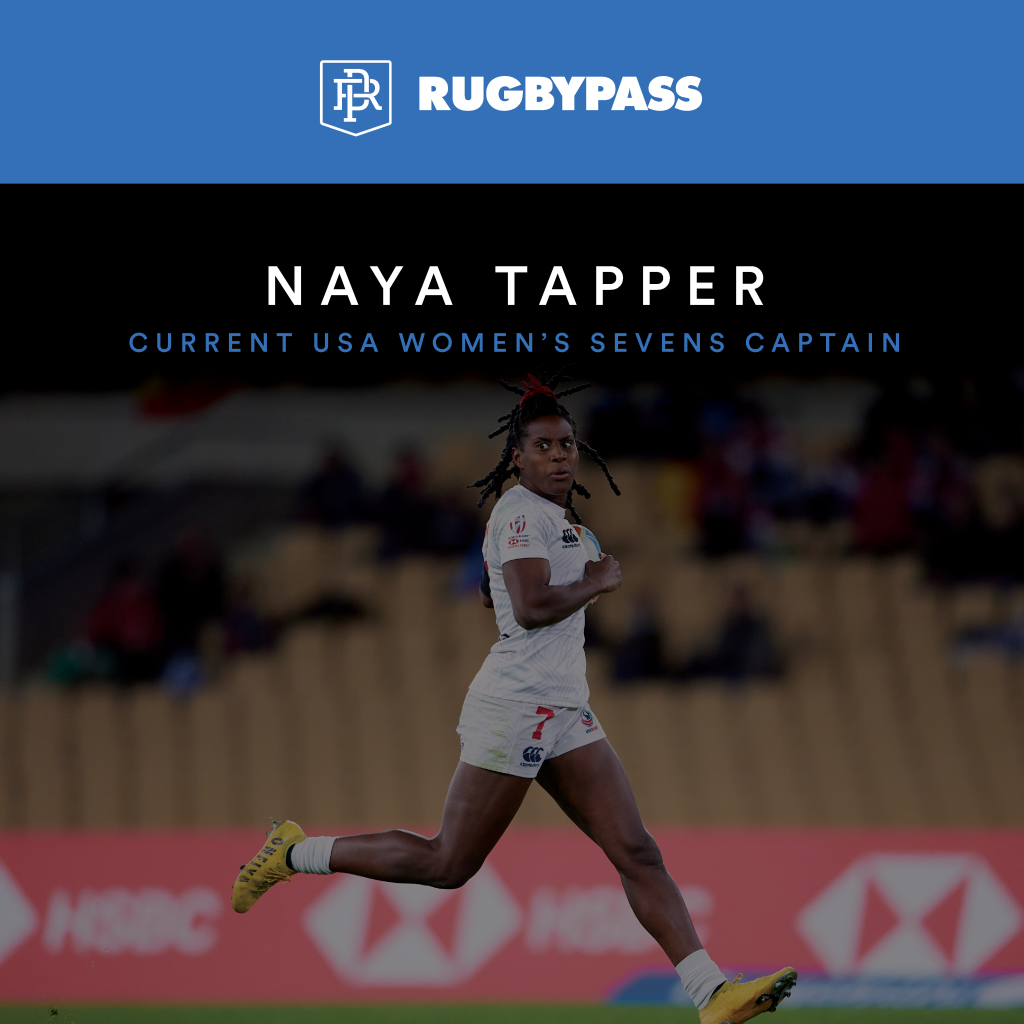
Last, but by no means least, we’ve spoken with current USA Women’s Sevens captain, and record try-scorer, Naya Tapper, to get her views before she heads off to compete at this year’s Olympics:
RP: What do you think this Olympics is going to do for the profile of the sevens?
NT: “With the first instance of the sevens at the Olympics in Rio, it gained a little bit of attention, but then in Tokyo Covid was happening, so the potential to gain new fans was severely limited. I really think with Paris it’ll be a huge opportunity to strengthen the relationship we have with our current fans, but also connect with new fans and inspire the next generation of players.
“I would also say that with the women’s game we’re playing some really good rugby right now and there’s a lot of great competition - whether you’re ranked first or twelfth, everybody is performing so well. This’ll definitely bring more excitement and hype and will show just how amazing the game is - on the women’s and men’s side.
“With the US team, we have a real chance to get on the podium and secure the gold. Doing this will be incredible for the growth of the sport here. In addition, I hope that it’ll inspire other nations around the world who are in the same position we used to be in to believe: ‘if they can do it, we can do it’.”
RP: So you’re saying Olympic success is a surefire means of gaining more awareness?
NT: “No matter what the sport might be, everyone loves a winner. So if we can secure a medal, that will create an aura of success, and with success comes support in all aspects.
“Community wise, I feel it’s important to build from the bottom up, starting with our youth, to increase the growth of the sport in the US. Success at the Olympics will get more young kids inspired and involved as well as the community around them.
“Business wise, success at the Olympics would mean more potential coverage of our games, sponsorships, and fundraising efforts. This will provide more accessibility to the sport, develop a clearer pathway, and push the sport forward.”
“For me, the possibility of the Olympics was the reason I dropped everything I was doing to try this sport.”
RP: With the younger fans, do you find that sevens is often more appealing to these demographics in America?
NT: “Yeah definitely. I think at the moment that we as a country struggle to provide the financial support a professional rugby player deserves in comparison to sports like football or soccer. But, what we do have is the Olympics ticket, which I think will be a game changer for younger fans to turn them on to the sevens.
“For me, the possibility of the Olympics was the reason I dropped everything I was doing to try this sport. This could be a similar thing that entices young players of other sports - at least until we’re able to get more support to provide future rugby players with what they deserve.”
RP: How do you feel about established rugby stars moving to the sevens to play in the Olympics?
NT: “I think it’s amazing that we are attracting players that can bring fresh eyes to the sevens as well as great talent, but I hope that they join for a long time and not just a good time if you get my drift.
“I’ll always be excited when a star comes in, but culture wise I think it’s important to also take into consideration the effect it can have on other sevens players that have dedicated their life to the sport. I think balance is important.
“Personally speaking, I have done the moves and gone to the XVs for a World Cup, so I definitely don’t want to come off as a hypocrite. But from that experience, I better understand different opinions and perspectives on the topic. Winning is important, as well as public engagement, but so is culture! How can we find the balance!?”
RP: In your experience, how much has the women’s sevens changed or improved in recent years?
NT: “The players that have come up in the last few years like Maddi and Teagan Levi, Jorja Miller, Piper Logan, and players from the likes of France, South Africa, Brazil, and Japan, show the range of talent across the teams. It used to just be the top six sides in the world, whereas now you can’t make any safe bets on who would win a game. Side note, no betting allowed!
“The skills and physical attributes of these rugby sevens women has increased across the board. This is of course so exciting to see through my eight-year journey with rugby.
“Then there are the improvements in equality with the men’s game. We’re getting more tournaments and similar placements to the men, which has provided us the opportunity to gain new fans in support of women’s rugby!”
“With all the things that we have to do in a short amount of time, we are one of the fittest sports in the world for sure.”
RP: What’s the atmosphere like in the US women’s camp right now, compared to say four years ago?
NT: “We have cultivated an amazing culture with the ‘Highwomen philosophy’, providing us with a platform to support us as a team to success at the Olympics.
“Our coach [Emilie Bydwell] has put a lot of emphasis on this during our 3 year Olympic build up, looking at how we can be the best mentally, physically, and emotionally.
“Emilie instils this philosophy of the ‘Highwomen’, creating a safe space and connection where everyone knows your motivation and how to support you. She’s very open to feedback and wants to know what we as players need to be successful. Her emotional intelligence is also a plus. And this isn’t something we work on every now and then. It’s an everyday task. I truly praise her for what she’s done with this group.”
RP: You mentioned fitness and skills alongside mentality there, how else do you train for this, particularly at an Olympic level?
NT: “With all the things that we have to do in a short amount of time, we are one of the fittest sports in the world for sure. But no, basically it [the physical training] never stops [laughs] but the more fit you get, the more you’re expected to perform, so it’s like a never-ending cycle.”
RP: What would you say to all the young girls out there to encourage them to get into rugby?
NT: “I would say that this sport has been life changing for me on so many different levels and it has exposed me to so many amazing people and places. It has allowed me to accomplish many great things I didn’t know I was capable of accomplishing. I mean, I’m getting ready for my second Olympics and I never imagined a first!
“My advice, come into the sport open-minded; ready to be challenged; ready to be supported by a huge community and also ready to have some fun, because it is such an exciting sport with incredible fans.”
